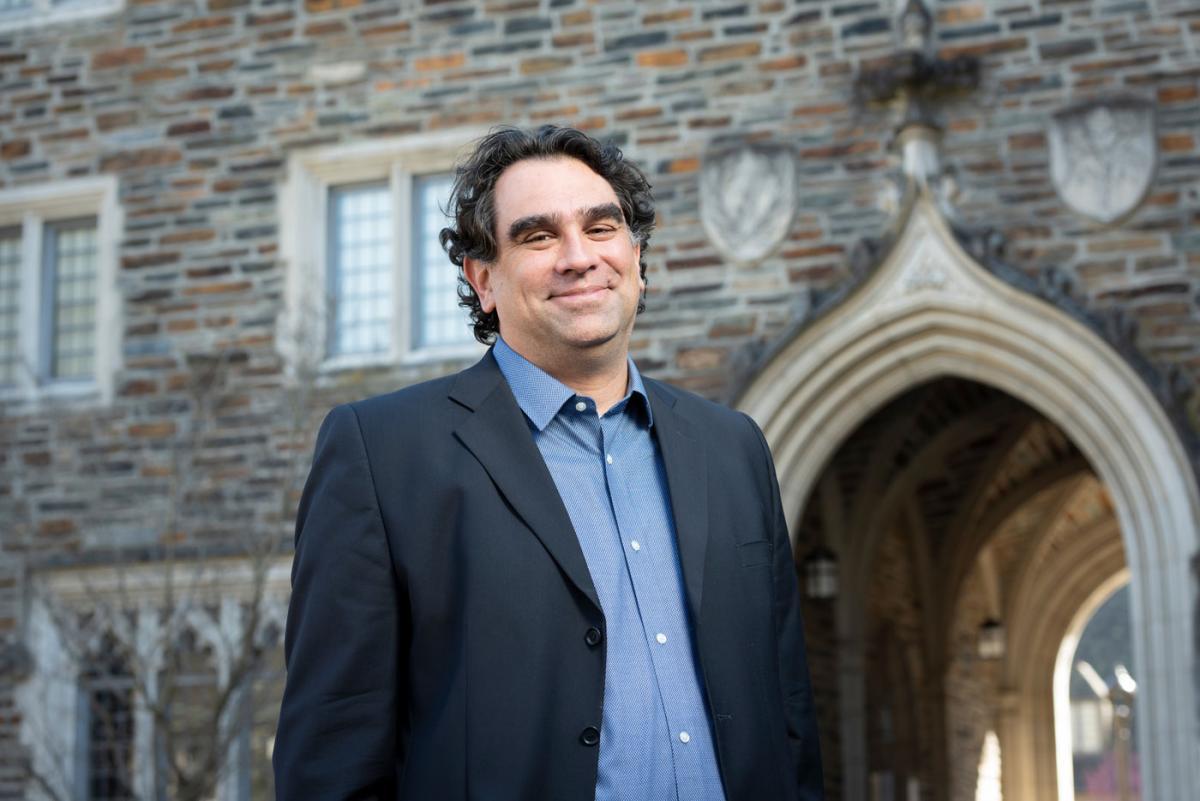
Marcos A. Rangel
Dean’s Award for Excellence in Mentoring
Associate Professor, Sanford School of Public Policy

BIO
Marcos A. Rangel is an associate professor in the Sanford School of Public Policy. He completed his Ph.D. at the University of California, Los Angeles, and his bachelor’s at Pontifical Catholic University. In addition to his teaching, he has published many articles and book chapters, and has been the co-director of the Science Core at the Duke Population Research Center since 2019. He also has served as an affiliate or fellow at a number of institutes, including a current tenure as a faculty affiliate for the Center for Child and Family Policy at Duke.
Rangel has served as an advisor for 21 Ph.D. candidates, 25 master’s dissertations and projects, and 11 undergraduate theses. He is known for his ability to go above and beyond for his students’ academic development and his commitment to seeing their academic and research success. In 2019, he received the Sanford School’s Richard A. Stubbing Award for Graduate Teaching and Mentoring.
ON MENTORING
What do you think are the most important qualities of a good mentor for graduate students?
I believe a good mentor needs empathy, especially while mentees are still at their course-taking stage of their graduate programs. These are very solitary and difficult times for most people, and some are far from family and friends, and most even in a foreign country. The human element needs to come first. Upon reaching the phase of the program in which they are conducting research, then I think the mentor needs to focus on treating those as colleagues. There is a difficult balance here in which you want to offer advice and guidance, but at the same time to challenge student to figure out solutions on their own (after all that is the skill ultimately being developed). I was very fortunate to have found all those predicates on my own advisor. I am very grateful for that and can only aspire to reach a fraction of his excellence on those fronts.
The benefits of a mentoring relationship for the mentee are obvious, but what do you, as the mentor, gain from it?
My students are the ones keeping me updated and my work relevant. They push me to not fall into obsolescence and to keep learning. Most times the interaction with students is exactly where I get my intellectual stimulation on campus. In fact, invariably I learn about other faculty research interests when we are interacting over the research of our mentees.
What does a successful graduate student mentoring relationship look like? How do you build such a relationship?
I think you build that by offering space for student to try, make mistakes and find creative solutions. Therefore, fostering trust in a mentorship relationship is key. Treating every student with respect and honesty is how I try to achieve it. Ultimately, most of my interactions are about helping students persevere. This is something you cannot easily tell people to do, and setting an example is my way of doing it.
IN THEIR WORDS
Excerpts from Rangel’s nomination
“Marcos offers relentless support, technical expertise, and inspiration for students’ work. He is the most regular attendee among Sanford faculty of student research workshops and an attentive listener who asks incisive questions and comments in a polite, smart, and stress-free way.”
“He translates his scholarly knowledge into action by designing his courses and tailoring his teaching approach and grading practices with students from underrepresented groups in higher education in mind.”
“He is passionate, empathetic, kind, and engaging. He is very careful with his words and is always willing to find the best ways to clarify complex concepts, even when we ask the same questions over and over again.”